liability insurance for small churches
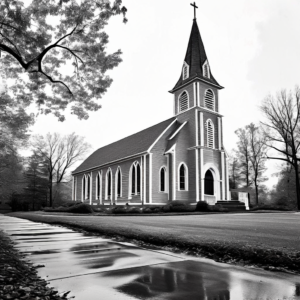 As an independent insurance agent at Blake Insurance Group, I understand that small churches play a vital role in their communities, providing spiritual guidance, support, and a sense of belonging. However, these institutions also face unique risks and challenges that require comprehensive insurance coverage. From protecting against liability claims to safeguarding physical assets and ensuring the well-being of pastors and staff, having the right insurance in place is crucial for your church’s long-term sustainability and growth.
As an independent insurance agent at Blake Insurance Group, I understand that small churches play a vital role in their communities, providing spiritual guidance, support, and a sense of belonging. However, these institutions also face unique risks and challenges that require comprehensive insurance coverage. From protecting against liability claims to safeguarding physical assets and ensuring the well-being of pastors and staff, having the right insurance in place is crucial for your church’s long-term sustainability and growth.
In this article, we will explore the various insurance options available to small churches, tailored specifically for those located in Arizona, Alabama, Florida, Georgia, New Mexico, New York, North Carolina, Oklahoma, Ohio, Texas, and Virginia. By understanding the diverse range of coverages, you can make informed decisions and ensure that your church is adequately protected against potential risks and liabilities.
At Blake Insurance Group, we pride ourselves on our expertise in the insurance industry and our commitment to providing personalized solutions that meet the unique needs of our clients. We understand that every church is different, with varying sizes, ministries, and risk profiles. That’s why we take a consultative approach, working closely with you to assess your specific requirements and tailor an insurance package that offers comprehensive protection while remaining cost-effective.
Whether you’re seeking general liability coverage, property insurance, or specialized policies like pastoral professional liability or abuse and molestation coverage, we have the knowledge and resources to guide you through the process. Our goal is to provide you with peace of mind, allowing you to focus on your ministry and serve your community without worrying about potential financial or legal consequences.
In the following sections, we will delve into the various insurance subtopics that are essential for small churches, providing detailed explanations and insights to help you make informed decisions. We believe that by equipping you with the right information, you can confidently navigate the complexities of insurance and ensure your church’s long-term success and protection.
Insurance for Small Churches
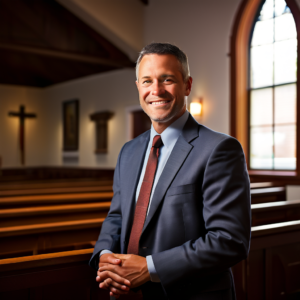 General Liability Insurance for small churches
General Liability Insurance for small churches
General liability insurance is the cornerstone of any church insurance policy. It protects your church from third-party claims of bodily injury, property damage, and personal injury. For example, general liability insurance will cover medical expenses and legal fees if a visitor slips and falls on church property. Regardless of size, this coverage is crucial for any church to safeguard against potential lawsuits.
property insurance for small churches
Property insurance protects your church’s physical assets, including the building and its contents. This coverage includes protection against risks such as fire, theft, vandalism, and natural disasters. Given the rise in inflation, ensuring your property insurance keeps pace with current replacement costs is essential to avoid underinsurance.
Directors and Officers (D&O) Insurance for Churches
D&O insurance protects the church’s leadership, including board members and trustees, from legal actions resulting from their decisions. This coverage is essential for safeguarding the personal assets of those who make financial and strategic decisions on behalf of the church.
Workers’ Compensation Insurance
Workers’ compensation insurance is mandatory in most states and covers medical expenses and lost wages if an employee is injured. This coverage is crucial for churches with paid staff, including pastors and administrative personnel.
Pastoral Professional Liability Insurance
Pastoral professional liability insurance, also known as pastoral counseling insurance, covers legal expenses related to claims of negligence or misconduct during counseling sessions. This coverage is essential for protecting the church and its pastors from potential lawsuits.
Abuse and Molestation Coverage
Abuse and molestation coverage is critical for protecting your church against claims of sexual misconduct. This coverage helps cover legal fees and settlements, ensuring that your church can continue its mission without the financial burden of such claims.
Business Auto Insurance
Business auto insurance is necessary if your church owns vehicles for transporting members or goods. This coverage protects against liabilities and damages from vehicle accidents, ensuring that your church’s transportation needs are met without financial risk.
Health Insurance Options for Pastors and Staff
Providing health insurance for your pastors and staff is an important consideration. Options such as Health Reimbursement Arrangements (HRAs) and Qualified Small Employer HRAs (QSEHRAs) offer flexible and affordable ways to provide health benefits, helping to attract and retain dedicated employees.
Costs of Small Church Insurance
General Liability Insurance
General liability insurance protects your church from third-party claims of bodily injury, property damage, and personal injury. For small churches, the premiums for general liability coverage typically range from $700 to $3,000 annually. This coverage usually includes:
– $1 million per occurrence
– $2 million aggregate
– $5,000 medical expense
– $1 million personal and advertising injury
– $1 million damages to rented premises.
Property Insurance
Property insurance covers the church building and its contents against risks such as fire, theft, vandalism, and natural disasters. The cost of property insurance depends on factors like the size and age of the building, location, and the value of the contents. For small churches, property insurance premiums can range from $1,900 to $15,000 annually, depending on the specific needs and coverage limits.
Directors and Officers (D&O) Insurance
D&O insurance protects the church’s leadership from legal actions related to their decisions. D&O insurance can cost a couple hundred dollars when bundled with a church insurance package. If obtained on a standalone basis, the price can go up to $500 or more annually.
Workers’ Compensation Insurance
Workers’ compensation insurance covers medical expenses and lost wages for employees injured on the job. The premiums for this coverage depend on the number of employees, the type of services offered, and the amount of payroll. Workers’ compensation premiums typically range from $550 to $800 annually for small churches.
Pastoral Professional Liability Insurance
Pastoral professional liability insurance covers claims of malpractice, negligence, or other issues arising from pastoral counseling. The premiums for this coverage vary based on the type of counseling services provided and can range from $100 to several thousand dollars annually.
Abuse and Molestation Insurance
Abuse and molestation insurance provides coverage for sexual misconduct claims. The cost of this coverage depends on the number of church members and the coverage limits. For example, $100,000 in coverage can cost around $350 annually, while $1,000,000 in coverage can range from $800 to several thousand annually.
Employment Practices Liability Insurance (EPLI)
EPLI covers claims related to wrongful employment practices, such as discrimination, harassment, and wrongful termination. The premiums for EPLI depend on factors like the number of employees, coverage limits, and prior claims history. Premiums can range from several hundred dollars to several thousand dollars annually.
Commercial Auto Insurance
If your church owns vehicles, commercial auto insurance is necessary. The premiums for this coverage depend on the type of vehicle, coverage limits, and location. For small churches, commercial auto insurance premiums typically range from $1,500 to $2,500 annually.
Umbrella Liability Insurance
Umbrella liability insurance provides additional coverage beyond the primary policies. On average, an excess liability policy costs between $500 and $1,000 per million dollars of coverage, depending on the insurance company and the church’s overall size.
Specialized Church Insurance agents
Working with specialized church insurance agents, such as those from the Blake Insurance Group, can provide numerous benefits for churches seeking comprehensive and tailored insurance coverage. These agents possess specialized knowledge and experience in the unique needs and risks associated with religious organizations, which can be invaluable in navigating the complexities of church insurance.
**Specialized Knowledge and Experience**
Specialized church insurance agents deeply understand the unique insurance requirements and risks that churches face. This knowledge allows them to provide valuable guidance and ensure that the chosen insurance agency can offer comprehensive coverage that meets the church’s specific needs.
**Access to Multiple Church Insurance Providers**
These agents have access to multiple insurance carriers that specialize in church insurance. This allows them to compare quotes and find the best coverage options and competitive pricing for the church.
**Personalized Insurance Solutions**
Specialized church insurance agents can provide personalized insurance solutions catering to the church’s needs. They can help devise a custom insurance plan that covers all the church’s needs, from property and liability coverage to specialized coverage for unique risks that churches face.
**Claims Support**
In the event of a claim, specialized church insurance agents can provide support and guidance, leveraging their experience and understanding of church insurance to help the church navigate the claims process.
**Financially Strong Insurance Companies**
These agents can connect churches with financially strong insurance companies, ensuring that a reliable and stable provider backs the church’s insurance coverage.
**Blake Insurance Group**
The Blake Insurance Group is an example of an agency that provides specialized church insurance services. They are committed to offering their clients quality choices at affordable rates. As an independent insurance agency, they have the necessary tools to research multiple options and recommend a company with coverage customized to fit the church’s needs.
Top church insurance companies 2024
| Company | Community Engagement | Coverage Offered | Financial Strength | Customer Service | Risk Management Resources |
|---|---|---|---|---|---|
| Church Mutual Insurance Company | Supports various charitable organizations and initiatives. Committed to diversity, equity, and inclusion. | Comprehensive multi-peril policies for religious organizations, including property, liability, workers' compensation, and commercial auto. | Rated A (Excellent) by A.M. Best. Policyholder surplus of over $842 million. | Known for excellent customer service and high satisfaction rates. | Provides innovative safety technology and resources, including sexual abuse prevention training and armed intruder preparedness. |
| Great American Insurance Company | Actively involved in philanthropic efforts, supporting various charitable organizations and initiatives. | Offers a wide range of specialty solutions, including property, casualty, and specialty coverages for religious organizations. | Rated A+ by A.M. Best. Strong financial performance with $5.3 billion in gross written premium in 2020. | Outstanding customer service and dependable claims response. | Provides tailored risk management solutions to meet specific industry needs. |
| GuideOne Insurance Company | Supports charitable causes through the GuideOne Foundation and donated volunteer work hours. | Offers specialized insurance products for religious organizations, including property, liability, workers' compensation, and commercial auto. | Rated A- (Excellent) by A.M. Best, with a stable outlook. | Known for personal service from local agents and high customer satisfaction. | Provides comprehensive programs and resources, such as the SafeChurch risk management portal. |
| Brotherhood Mutual Insurance Company | Committed to upholding Biblical values and supporting ministries in their mission. | Offers property, liability, commercial auto, workers' compensation, and mission travel insurance tailored to religious organizations. | Rated A- (Excellent) by A.M. Best. Admitted assets of $1.088 billion and a policyholder surplus of $322 million. | Known for high customer satisfaction, with 98% of clients reporting positive claims experience. | Provides risk management resources and services, such as payroll processing and mission travel insurance. |
| Nationwide Insurance Company | Actively involved in philanthropic efforts, including significant contributions to Nationwide Children's Hospital and diversity and inclusion initiatives. | Provides a diverse portfolio of insurance products, including coverage for religious organizations. | Rated A+ by A.M. Best, A1 by Moody's, and A+ by Standard & Poor's. Total assets of $270.2 billion in 2022. | Known for excellent customer service and commitment to diversity, equity, and inclusion. | Offers innovative solutions like 24-hour claims reporting and mobile claims applications. |
| Philadelphia Insurance Company (PHLY) | Known for best-in-class customer service and a strong corporate culture focused on volunteering and giving back to local communities. | Offers specialized insurance products for religious organizations, including property, liability, and specialty coverages. | Rated A++ (Superior) by A.M. Best and A+ by Standard & Poor's. | Provides value-added coverages and services and supports future generations of insurance professionals. | Offers risk management resources and online tools for policy management, loss control, and claim reporting. |
| Southern Mutual Church Insurance Company | Founded to address the lack of coverage for rural churches, supporting churches through difficult times. | Offers property, liability, and other specialized insurance products tailored to churches. | Consistently receives high ratings from A.M. Best and Demotech Inc., ensuring reliable protection for policyholders. | Known for quick response times in the aftermath of disasters, helping churches rebuild and recover swiftly. | Emphasizes "Savings, Service, and Security" as core values, providing dedicated support to member policyholders. |
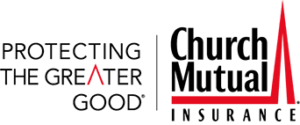 Church Mutual Insurance Company
Church Mutual Insurance Company
**Overview:**
Church Mutual Insurance Company, S.I. is the leading insurer of religious organizations in the United States. Founded in 1897 and headquartered in Merrill, Wisconsin, Church Mutual provides a wide range of insurance products tailored to the needs of religious institutions, including churches, synagogues, temples, and other worship centers. The company also serves nonprofit and human services organizations, schools, senior living facilities, and camps.
**Key Features:**
– **Comprehensive Coverage:** Church Mutual offers various commercial property and liability insurance lines, including multi-peril, workers’ compensation, and commercial auto insurance.
Risk Management Resources:** The company provides innovative risk management resources to help customers navigate an ever-evolving risk landscape.
– **Financial Stability:** Church Mutual has an A (Excellent) rating from A.M. Best Company, with a policyholder surplus of over $842 million as of 2021.
– **Diversity and Inclusion:** Committed to advancing diversity and inclusion within the organization and its communities.
– **Market Area:** Operates in all 50 states and the District of Columbia, with a network of sales and risk control representatives across the country.
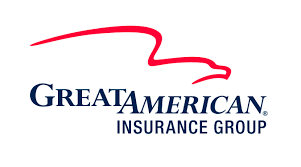 Great American Insurance Group
Great American Insurance Group
**Overview:**
Great American Insurance Group, based in Cincinnati, Ohio, is a property and casualty insurer focusing on specialty commercial products for businesses. The company traces its roots back to 1872 and has a long history of providing dependable risk management solutions.
**Key Features:**
– **Specialized Products:** Great American offers a wide range of specialty solutions, including accident & health, agribusiness, aviation, cyber risk, environmental, equine mortality, excess liability, executive liability, and more.
Financial Performance:** In 2020, the company reported $5.3 billion in gross written P&C premium, with a strong presence in specialty casualty lines, property, and transportation.
Historical Resilience:** The company has a history of financial stability, demonstrated by its response to the 1906 San Francisco earthquake when it paid all claims to help the city recover.
– **Corporate Headquarters:** Located in the Great American Insurance Group Tower at Queen City Square, Cincinnati’s tallest and greenest downtown building.
– **Target Industries:** Serves various industries, including agriculture, aviation, construction, education, healthcare, hospitality, manufacturing, marine, nonprofits, and more.
 GuideOne Insurance
GuideOne Insurance
**Overview:**
GuideOne Insurance, headquartered in West Des Moines, Iowa, is a niche-market insurer specializing in insurance for churches and other religious organizations. Founded in 1947, GuideOne is one of the largest church insurers in the United States.
**Key Features:**
– **Niche Expertise:** GuideOne has deep knowledge of niche markets, particularly religious organizations, nonprofit and human services, and educational institutions.
– **Financial Strength:** The company has an A- (Excellent) rating from A.M. Best. However, it was placed under review with negative implications in 2023 due to concerns about a significant decline in surplus and risk-adjusted capital ratios.
– **Innovative Solutions:** GuideOne offers comprehensive risk management programs, such as the GuideOne Center for Risk Management and SafeChurch, to help religious organizations manage risks effectively.
– **Community Engagement:** The GuideOne Foundation supports various charitable organizations, including Big Brothers Big Sisters of Central Iowa, Food Bank of Iowa, and Habitat for Humanity.
– **Operational Efficiency:** The company has focused on reducing organizational complexities and improving operational efficiency to better serve its policyholders.
 Brotherhood Mutual Insurance Company
Brotherhood Mutual Insurance Company
**Overview:**
Brotherhood Mutual Insurance Company, founded in 1917, is a leading insurance provider for churches and related ministries in the United States. Headquartered in Fort Wayne, Indiana, Brotherhood Mutual serves over 65,000 churches, Christian schools, camps, colleges, and other ministries across 47 states and the District of Columbia.
**Key Features:**
– **Specialized Coverage:** Offers property, liability, commercial auto, workers’ compensation, and mission travel insurance tailored to the needs of religious organizations.
– **Additional Services:** Provides payroll processing services through MinistryWorks® and mission travel insurance through Faith Ventures®.
– **Financial Strength:** Rated A- (Excellent) by A.M. Best, with admitted assets of $1.088 billion and a policyholder surplus of $322 million as of 2022.
– **Customer Satisfaction:** The company is Known for high customer satisfaction, with 98% of clients who file claims reporting that the service meets or exceeds their expectations.
– **Mission-Driven:** Committed to upholding Biblical values and supporting ministries in their mission to build the Kingdom.
 Nationwide Mutual Insurance Company
Nationwide Mutual Insurance Company
**Overview:**
Nationwide Mutual Insurance Company, based in Columbus, Ohio, is one of the world’s largest insurance and financial services companies. Founded in 1925, Nationwide offers various insurance products, including property and casualty, life insurance, retirement savings, asset management, and strategic investments.
**Key Features:**
– **Diverse Portfolio:** Provides car, motorcycle, homeowners, pet, farm, life, commercial insurance, annuities, mutual funds, retirement plans, and specialty health services.
– **Financial Strength:** Rated A+ by A.M. Best, A1 by Moody’s, and A+ by Standard & Poor’s, with total sales and premiums of $56.8 billion and total assets of $270.2 billion in 2022.
– **Customer-Centric:** Nationwide is Known for its commitment to diversity, equity, and inclusion and for providing excellent customer service. It has received numerous accolades, including being named one of Fortune’s “100 Best Companies to Work For.”
– **Innovative Solutions:** Pioneered several industry firsts, such as the first 24-hour claims reporting service and mobile claims application for iPhone users.
– **Community Engagement:** Actively involved in philanthropic efforts, including significant contributions to Nationwide Children’s Hospital and various diversity and inclusion initiatives.
 Philadelphia Insurance Companies (PHLY)
Philadelphia Insurance Companies (PHLY)
**Overview:**
Philadelphia Insurance Companies (PHLY), headquartered in Bala Cynwyd, Pennsylvania, is a premier national property and casualty insurance carrier specializing in niche markets. Founded in 1980, PHLY is a member of the Tokio Marine Group, one of the largest insurance groups in the world.
**Key Features:**
– **Niche Expertise:** Offers specialized insurance products in over 120 niche markets, including commercial auto, cyber security, educational, entertainment & recreation, health & fitness, non-profit and human services, and more.
– **Financial Strength:** Rated A++ (Superior) by A.M. Best and A+ by Standard & Poor’s, with a combined ratio of 92% and a claims overall satisfaction rating of 96%.
– **Customer Service:** Known for best-in-class customer service and a strong corporate culture focused on volunteering and giving back to local communities.
– **Innovative Programs:** Provides value-added coverages and services and supports future generations of insurance professionals through programs like the PHLY Summer Associates Program.
– **Global Reach:** As part of the Tokio Marine Group, PHLY benefits from strong financial backing and global expertise.
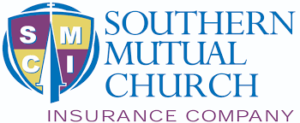 Southern Mutual Church Insurance Company
Southern Mutual Church Insurance Company
Overview:
Southern Mutual Church Insurance Company (SMCI) was founded in 1928 by the South Carolina Baptist Convention to provide insurance coverage for churches, particularly those in rural areas that struggled to find coverage with larger companies. Headquartered in Columbia, South Carolina, SMCI has grown to serve over 9,000 churches across various denominations and states.
Key Features:
Specialized Coverage: Offers property, liability, and other specialized insurance products tailored to the needs of churches.
Rapid Response: Known for quick response times in the aftermath of disasters, helping churches rebuild and recover swiftly.
Financial Stability: Consistently receives high ratings from A.M. Best and Demotech Inc., ensuring reliable protection for policyholders.
Commitment to Service: It emphasizes “Savings, Service, and Security” as its core values and provides dedicated support to its member policyholders.
Historical Significance: Founded to address the high insurance costs and lack of coverage for rural churches, SMCI has a rich history of supporting churches through difficult times
Frequently Asked Questions (FAQs) - Small Church Insurance
1. What types of insurance coverage are essential for small churches?
Small churches should consider several types of insurance coverage to protect against various risks. Essential coverages include:
- General Liability Insurance: Covers third-party claims of bodily injury, property damage, and personal injury.
- Commercial Property Insurance: Protects the church building and its contents against risks such as fire, theft, vandalism, and natural disasters.
- Workers' Compensation Insurance: Covers medical expenses and lost wages for employees injured on the job.
- Pastoral Professional Liability Insurance: Provides financial protection for pastors against claims of negligence or misconduct during counseling sessions.
- Business Auto Insurance: Covers vehicles used for church activities, providing protection against damage and liability.
2. How much does property insurance cost for small churches?
The cost of property insurance for small churches can vary based on several factors, including the size of the church, the age of the building, the location, and the type of services offered. Generally, premiums can range from $1,900 to $15,000 annually. Factors such as claims history and property value also play a significant role in determining the cost of insurance.
3. What factors affect the cost of insurance for small churches?
Several factors can influence the cost of insurance for small churches, including:
- Size of the Church: Larger churches may have higher premiums due to increased risks.
- Age and Condition of the Building: Older buildings may require higher premiums due to potential structural issues.
- Location: Churches in areas prone to natural disasters or high crime rates may face higher insurance costs.
- Type of Services Offered: Churches offering additional services, such as daycare or counseling, may need additional coverage, impacting the overall cost.
- Claims History: A history of frequent claims can lead to higher premiums.
4. Are churches required to provide health coverage for their employees?
Whether a church is required to provide health coverage depends on its size. According to the Affordable Care Act (ACA):
- Churches with 50 or More Full-Time Employees: Considered applicable large employers (ALEs) and are mandated to offer at least minimum essential coverage (MEC). Failure to do so can result in penalties.
- Churches with Fewer than 50 Full-Time Employees: Not required by law to provide health coverage. However, offering health coverage is considered best practice for employee retention and providing a financial safety net for employees and their families.
5. What should a church do in the event of an accident on its property?
In the event of an accident on church property, it is crucial to follow these steps:
- Provide Immediate Medical Attention: Ensure that the injured person receives necessary medical care.
- Notify the Insurance Agent: Report the accident to the church's insurance agent as soon as possible.
- Avoid Discussing Fault or Coverage: Let the insurance company handle communications regarding fault and coverage.
- Collect Detailed Information: Gather information about the injured person, witnesses, the extent of the injury, and how the accident occurred.
- Complete an Incident Report: Fill out an incident report form with all relevant details to assist the insurance company in processing the claim.


